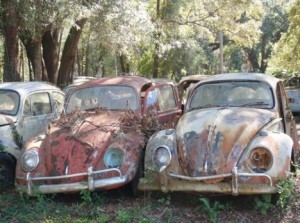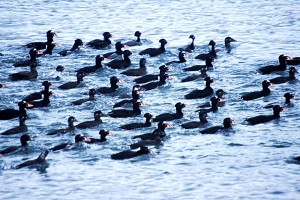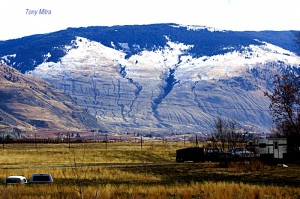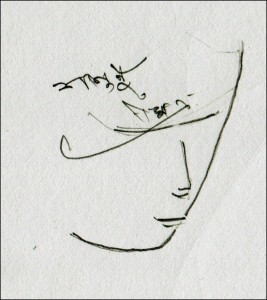We are under attack – by information overload, material overload, trivia overload, sensory overload and ultimately – junk overload. Thinking about it could raise my level of stress, because I do not seem to have a suitable cure. This civilization does not recognize this state of affairs as an undesirable condition, and apparently does not, therefore, offer a relief. Equally frustratingly, this view is not shared by others. It is perhaps not even understood by folks that were close enough for me to discuss it with.
Take our personal emails. I get perhaps forty or fifty a day. With the best of the spam filters there still are a few advertisements that slip in – attempting to sell me cheap medicine, or connect me with young and lonely females that claim to live practically next door to me and are dying to meet me, even if they have no idea who I am. And then there are other advertisements that I have inadvertently allowed to come my way. These are offers to cheap airlines ticket that promises to take me to some far of place that I have no intension of visiting right now. There are messages from hotels that are offering economic rates, also in places that I do not wish to visit. There are streams of messages from unknown people that commented something in Facebook that has somehow a link with me which I was not careful enough to de-link.
The worst part of it is – out of a hundred emails that collect in our multiple email addresses, only one or two are actually from people we know, and addressed solely to me, on a subject that is personal. Few are from relatives or close friends. Folks call on phone rather than send email. Alternately they send messages embedded within social networking sites.
So, the junk overload accumulates if you are on a vacation or if you do not trash them regularly. They pile up into mountains of emails with not much value in any of them, increasing the temptation to junk the whole lot without reading any. This raises the risk of deleting something that might have been valuable, like a needle in a haystack.
Now, forget emails, and check physical mail. Everyday I receive some mail. A small portion of the weekly collection would be bills I need to pay. The rest are all advertisements I do not want to see and wish I did not receive. But receive them I have, and now must take the trouble of disposing in a sustainable way which increases my work, and might even cost me something. I and the planet would have been better off if those pamphlets, brochures, cards and envelops did not get printed and mailed out. Someone is paying for this wasted mail junk.
Whoever pays for them, is going to recover it back from someone else one way or another. Ultimately, the earth pays for it and has no one to complain to and nowhere to recover the loss from.
And then there are the junk phone calls, including from Mexico, informing me that I might have won some prize that allows me to have a fantastic vacation in Cancun or some place at a very reasonable price for a weekend for two, and they will right away confirm it all if I should give them my credit card details etc. And then there are unregistered callers that want donations for all kinds of great causes.
And then comes the electronic, metallic, plastic and other junk that we accumulate at an ever increasing rate.
Can I safely say that this civilization and the lifestyle has converted me into a junk producer or junk accumulator?
Where is the recourse, the exit plan, the relief from this vicious cycle ? The alternative is touted as digressing, retreating into backwardness, degenerating. We must continuously consume junk, produce junk and spread junk around ourselves.
That’s progress.

Meanwhile, we have no real friends that send us either a decent email or a decent letter. We have no real friends or relatives, not even one, with whom one could engage in intellectual exchanges. Nobody lives nearby anyway. And our interaction with those nearby are mostly at a trivial, or superfluous level. The entire human consciousness appears to be locked into superfluous pursuits of trivia. Everything is shallow and two dimensional. Depth is a concept alien to these two dimensional creatures.
We have created a virtual world for our spare time. Real world is only for the drudgery of earning money. The virtual world is where we must reside after work, and from which we must derive our pleasures of life. It is here that I do my writing, that some unfortunate people from different corners of the world might accidentally stumble upon and glance through. It is here that a clever widget someone designed as a plugin for my blog, lets me know how people from Delhi, Paris or San Jose, might have clicked on my page. And this knowledge, skimpy and insignificant as it might be, is expected to induce a sense of pleasure or satisfaction in me, so I can continue to generate more matter for more unknown persons to stumble upon from more corners of this planet.
And out of all those that stumble upon it, there surely must be folks that have no intension of reading my thoughts. There will be folks that do not share my views, particularly the negative or pessimistic ones, people who believe this world is fine and nothing is the matter with it. There will be those that could harbor a middle of the road approach – while things are not exactly ideal, it could have been worse, and in any case, there is not a lot one could do about it. Humans are creatures of habit. They get used to their surroundings. It is not natural, I guess, to step outside of our comfort zone and look at the world from afar.
Overload of insignificant trivia has become the foundation of our existence. That is the platform on which we base our culture, civilization, and modern life.
Why am I complaining ? Whats the matter with me ?





